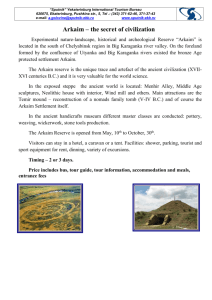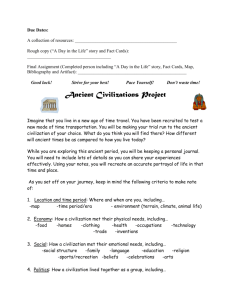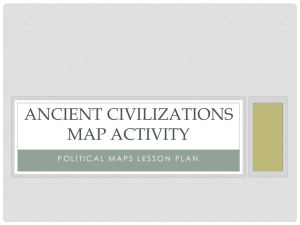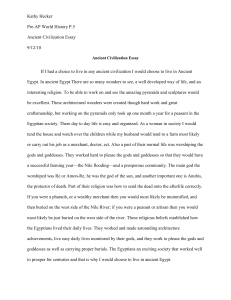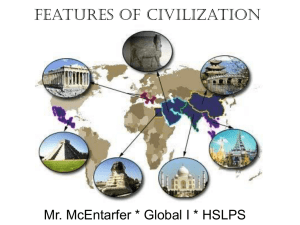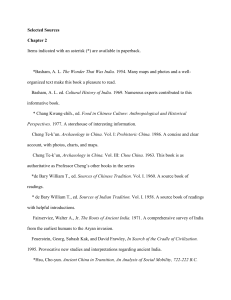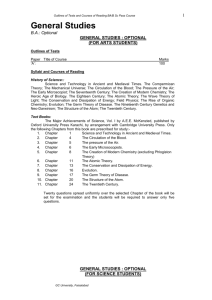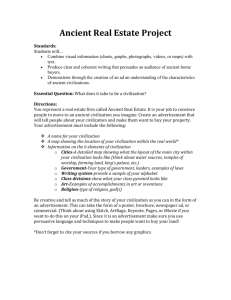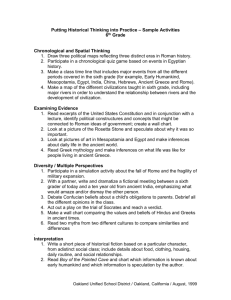Worldview – Activity II. 1. AZTEC CIVILIZATION Enforce its laws
advertisement
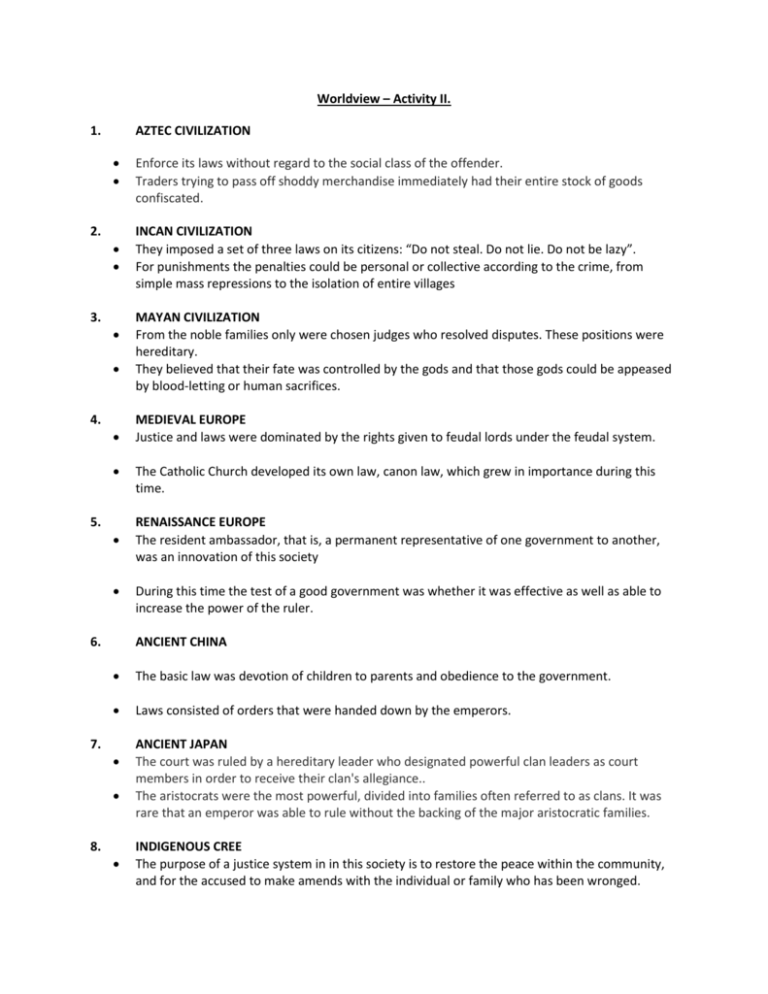
Worldview – Activity II. 1. AZTEC CIVILIZATION 2. 3. 4. 5. 6. Enforce its laws without regard to the social class of the offender. Traders trying to pass off shoddy merchandise immediately had their entire stock of goods confiscated. INCAN CIVILIZATION They imposed a set of three laws on its citizens: “Do not steal. Do not lie. Do not be lazy”. For punishments the penalties could be personal or collective according to the crime, from simple mass repressions to the isolation of entire villages MAYAN CIVILIZATION From the noble families only were chosen judges who resolved disputes. These positions were hereditary. They believed that their fate was controlled by the gods and that those gods could be appeased by blood-letting or human sacrifices. MEDIEVAL EUROPE Justice and laws were dominated by the rights given to feudal lords under the feudal system. The Catholic Church developed its own law, canon law, which grew in importance during this time. RENAISSANCE EUROPE The resident ambassador, that is, a permanent representative of one government to another, was an innovation of this society During this time the test of a good government was whether it was effective as well as able to increase the power of the ruler. ANCIENT CHINA The basic law was devotion of children to parents and obedience to the government. Laws consisted of orders that were handed down by the emperors. 7. 8. ANCIENT JAPAN The court was ruled by a hereditary leader who designated powerful clan leaders as court members in order to receive their clan's allegiance.. The aristocrats were the most powerful, divided into families often referred to as clans. It was rare that an emperor was able to rule without the backing of the major aristocratic families. INDIGENOUS CREE The purpose of a justice system in in this society is to restore the peace within the community, and for the accused to make amends with the individual or family who has been wronged. Laws grow from the customs, traditions and rules of a society of people. ANCIENT GREECE Men could also be punished if they were not married by the age of 35. The Law of War focused on protecting sacred objects and observances. 9. 10. 11. 12. ANCIENT ROME A man could by law to make a will as he wished, but, if he did not leave his children at least 25 percent of his property, the magistrate would grant them an action to have the will declared invalid. Should a tree on a neighbor's farm be bent crooked by the wind and lean over your farm, you may take legal action for removal of that tree. MESOPOTAMIA If a man has given his daughter a dowry, and the daughter dies without an issue, the dowry reverts to the house of her father. When a merchant gives to his clerk grain, wool, oil, or some other merchandise for sale, the clerk shall give a strict account and turn in the money to the merchant: and the merchant shall give to the clerk a receipt for the money paid over to him. ANCIENT EGYPT Punishments for breaking a law depending on the offense included: one hundred strokes of a cane, five bleeding cuts, branding, exile, mutilation, drowning, beheading, and burning alive. The rulers created the laws of the land and enforced them


